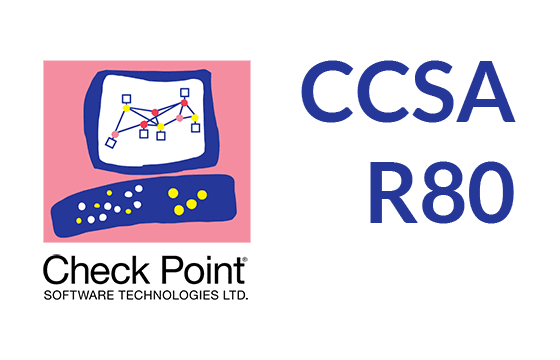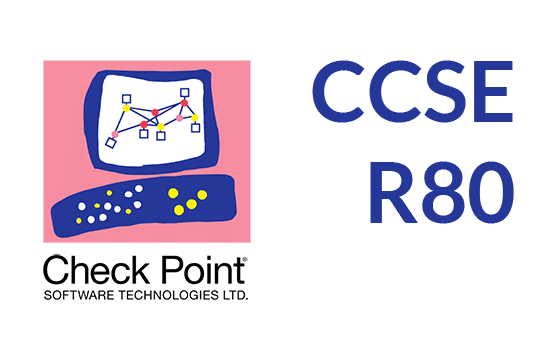Hot Checkpoint Certifications
All Checkpoint Exams
About Checkpoint Certifications
Check Point offers products and solutions that help businesses secure their network infrastructure, cloud architecture, and control users’ access. What’s more, it has a well-developed certification pathway that helps professionals consolidate their skills in the aforementioned areas and become competitive employees in the labor market.
Check Point Certifications
To begin your journey of accreditation, Check Point offers two core designations, as follows:
- Check Point Certified Security Administrator (CCSA) helps the candidates prove that they can manage and configure Check Point Management Software Blades and Security Gateways.
- Check Point Certified Security Expert (CCSE) accreditation is designed for applicants who want to develop solid knowledge on maintaining, designing, optimizing, and protecting their business network infrastructure from advanced cyber-attacks.
After that, the professionals who want to continue on your Check Point certification path can also enroll in the Security Master level. Therefore, they can access the following designations:
- Check Point Certified Security Master (CCSM) certification verifies the applicants' advanced expertise in working with Check Point Infinity architecture, which means that they possess required skills to deal with the Check Point products and services.
- Check Point Certified Security Master Elite (CCSM Elite) proves the highest level of the technical mastery of candidates and offers them the opportunity to enter the elite club of certified individuals.
It’s important to note that after obtaining the core certifications, candidates can also apply for Infinity Specialist Accreditations. Therefore, they will demonstrate that they are specialists in different areas such as automation, cloud, virtual system extension, and more. Moreover, Infinity Specialist certifications are required to qualify for the Security Master level.
Check Point Certified Security Administrator (CCSA) Certification
Usually, the candidates who decide to take the exam for CCSA certification are interested in mastering how to protect their network architecture against threats. As well, they aim to become experts in implementing and optimizing security policies. As a result, individuals who earn the CCSA certification are recognized as professionals who can identify and monitor any suspicious network activity alongside analyzing the source and impact that attacks might have.
While the vendor doesn’t have any mandatory prerequisites, the candidates will have higher chances to get the passing score on the related exam if they have from 6 months to 1 year of prior experience managing and working with the Check Point products.
The exam necessary for obtaining this accreditation is coded 156-215.80. It includes 90 multi-choice questions to which the candidates will need to find the correct answer in 90 minutes. The registration process should be finalized on the Pearson VUE platform, and there you must also pay the $250 registration fee for this exam. The test-takers should search for its code in the section dedicated to proctored exams and follow the steps that appear on the screen.
Topics Tested for Check Point Certified Security Administrator Accreditation
The professionals who want to obtain the CCSA certificate should possess the knowledge and skills in the following areas:
- Introduction to Check Point Architecture includes your ability to define the Check Point’s 3-tiered architecture, recognize mechanisms to control network traffic, be familiar with SmartConsole features and Check Point deployment options. As for your skills, you should be able to implement the Web UI and use its functions, configure network messages, create admin users for the network, be able to launch the GUI.
- Security Policy Management. In this section the questions will test your skills and knowledge on the core elements of a unified security policy, permissions and roles in managing policy, implementation of Check Point backup techniques, in creating and configuring networks, in applying policy layers, and scheduling backups for the gateway.
- Check Point Security Solutions domain is all about products and solutions for network access and treat protection. You should be familiar with the licensing for Check Point security solutions and be able to validate the products’ licenses available on your network.
- Traffic Visibility section is dedicated to identifying tools for data monitoring, viewing traffic, quickly responding to changes in traffic flow patterns, remote users, tunnels, and gateways.
- Basic Concepts of VPN checks your knowledge of VPN deployments & Check Point Communities. In this part candidates should demonstrate their skills in implementing VPN tunnel traffic, configuring a site-to-site VPN, testing VPN connection, and analyzing tunneling traffic.
- User Access Management section requires from you to perform skills to operate user access for internal users and guests, identify user access for a guest wireless user, and test Identify Awareness connection.
- Working ClusterXL application is focused on the basic terms of ClusterXL technology and the benefits of using it, setting up ClusterXL with a High Availability configuration.
- Administrator Task Implementation checks your skills to perform tasks indicated in Administrator job descriptions and checking the rule-base efficiency for policy control.
- SmartEvent Reports tests how good you are at summarizing network activity and how proficient you are in creating and generating network activity reports.
Check Point Certified Security Expert Certification
The candidates who decide to obtain the Check Point Certified Security Expert certificate must already have obtained the CCSA accreditation or passed the course dedicated to Security Administrators. Regarding prior knowledge, they should understand how to manage the Windows Server and UNIX architecture. Additionally, the vendor requires candidates to have TCP/IP experience and networking skills. Moreover, the specialists who want to leverage their chances for the CCSE accreditation should previously get a certificate in system administration and management.
Concerning the exam necessary for earning the CCSE certificate, it’s a test with code 156-315.80, which will cost you is $250. At the same time, this is a proctored exam for which the applicants need to follow the instructions available on the Pearson VUE platform.
Topics Tested for Check Point Certified Security Expert Accreditation
Professionals can easily obtain the CCSE certificate if they demonstrate that they successfully developed the following set of skills:
- Upgrading to save the configurations of Check Point products, Security Policies, and objects.
- Advanced Firewall domain checks your abilities to work with Security Gateway infrastructure to carry out debugs within the firewall processes.
- Acceleration and Clustering section is indented to test your skills in working with ClusterXL Load Sharing as well as ClusterXL High Availability. To be precise you should be proficient in their deployment building, testing, and troubleshooting.
- In Advanced User Management part candidates should demonstrate their skills to deal with external user database (LDAP), User Directory, operate both internal and external user access across a VPN, and troubleshoot the related issues detected by the Identity Awareness.
- Remote Access and Advanced IPsec VPN domain will check your knowledge of core VPN tunnel concepts and their troubleshooting methods. Here you also should know how to operate and test VPN tunnels.
- Reporting and Auditing is the final topic in this exam, and it requires from you to be knowledgeable of implementing SmartReporter and SmartEvent, be able to use SmartEvent architecture, and use command-line tools as well as debug-file information to fix report generation.
Career Path
The professionals who succeed in obtaining the Check Point certifications enter an exclusive group of certified individuals who share the same values and objectives. This leads to a number of advantages, both professional and financial.
In more detail, once you obtain the CCSA certificate you can earn an average of $86,807 and qualify for positions such as Security Engineer, Security Analyst, and Network Engineer, according to Payscale.com.
Meanwhile, the CCSE qualification will open you up to Network Security Engineer and Sr. Network Engineer, as well as the possibility of an average annual salary of $91,592.
Certification Path
As you realize, your certification journey doesn't end there. After obtaining the CCSA certification, you can move forward to earning the Infinity Specialist Accreditation path offered by Check Point. For example, you can enroll in the certification process for Check Point Certified Endpoint Specialist, Check Point Certified Troubleshooting Administrator, Check Point Certified Cloud Specialist, or Check Point Certified Troubleshooting Administrator designations.
On the other hand, if you are a CCSE certified specialist, then you can apply for Check Point Certified Virtual System Extension Specialist, Check Point Certified Maestro Expert, or Check Point Certified Troubleshooting Expert accreditations. All of this will lead you to obtain Security Master certificates.



